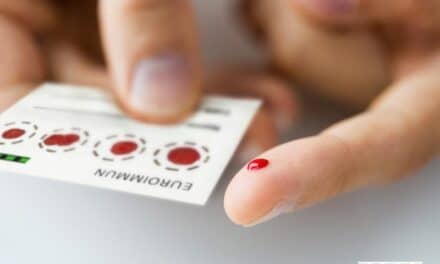Synvista Therapeutics Inc announces findings from a study that indicated Synvista’s proprietary monoclonal enzyme immunoassay can determine a person’s haptoglobin pheno/genotype in less than two hours, and can aid physicians in predicting cardiovascular risk in patients with diabetes. The study was presented at the 2008 Cardiovascular Biomarkers and Surrogate Endpoints Symposium in Bethesda, Maryland.
“This study shows the utility of our proprietary technology to diagnose Hp2-2 Diabetes, a disease affecting almost seven million people in the United States,” said Noah Berkowitz, MD, PhD, President and Chief Executive Officer of Synvista Therapeutics. “We believe that the ease of use of our haptoglobin diagnostic technology and rapid results bode well for its acceptance as an important tool in the treatment of cardiovascular disease in diabetic patients. In addition, we believe that the development of genetic markers like those identified by our test will continue to pave the way toward a personalized medicine model that will benefit a wider variety of patients in a more direct and reliably predictive manner.”
In the study, investigators developed an ELISA (enzyme-linked immunosorbent assay) using a monoclonal antibody that differentiates between the three haptoglobin pheno/genotypes. Blood samples from diabetic patients with known haptoglobin pheno/genotypes were tested using Synvista’s proprietary methodology. Results demonstrated 99.5% accuracy in determining each of the three haptoglobin types (48/48 Hp 1-1, 49/49 Hp2-1 and 90/91 Hp-2-2) with a ≥98% sensitivity and specificity for each phenotype.
Additionally, a second paper was presented at the Symposium highlighting the use of Synvista’s proprietary diagnostic kit for quantifying carboxymethyl-lysine (CML), a dominant advanced glycation end product (AGE). The study demonstrated that CML is a biomarker of mortality in the elderly.




